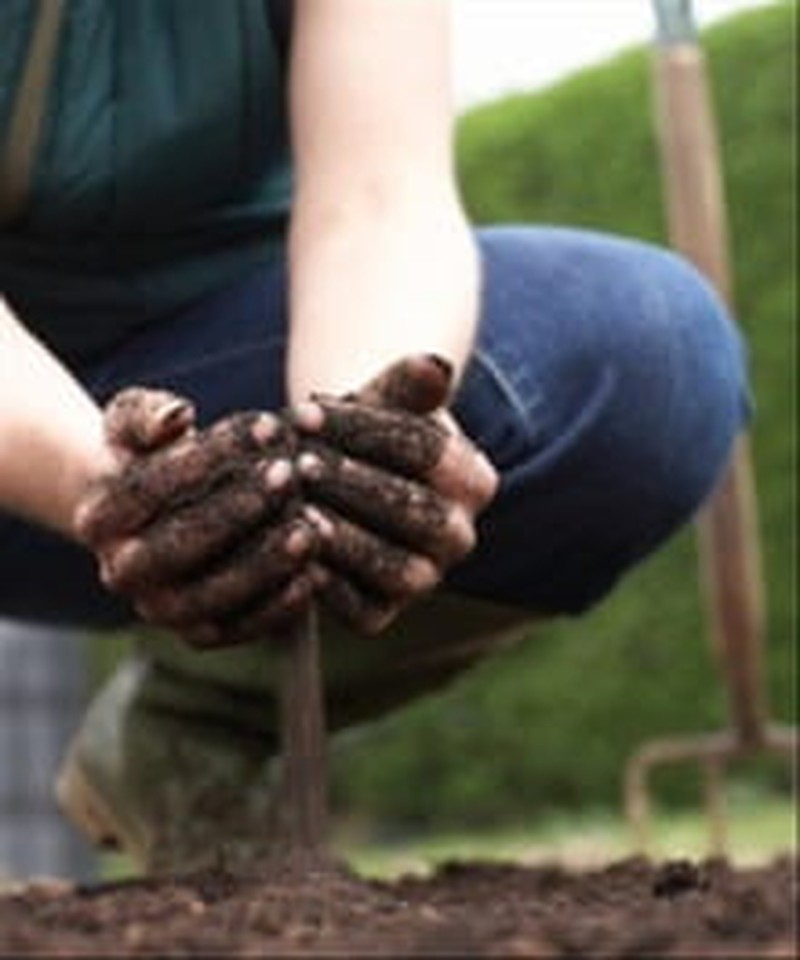Finding Community in a Garden
- Susan Ellingburg Crosswalk.com Contributing Writer
- Updated May 29, 2012

After a storm destroyed several trees on the grounds of my cousins’ church, the congregation decided to use the newly cleared land for a community garden. They set up some work days, installed raised beds and an irrigation system, and are now eagerly looking forward to harvesting their first crops. A portion of the produce (the ‘first fruits’ if you will) is earmarked for the church’s food pantry.
Granted, these are my tree-hugging cousins, the ones with the worm farm in their kitchen (don’t ask), but they’re not alone. Groups from California to Houston to New York have community gardens—there’s even one reported in a town north of the Arctic Circle, housed in an old hockey arena turned greenhouse. Why are all these people coming together to play in the dirt? Consider these benefits:
The Harvest: Juicy vine-ripened tomatoes, sun-warmed strawberries, zucchini (there’s always a ton of zucchini), lettuce, onions, even flowers. It doesn’t come any fresher than picking it yourself and when you’ve watched over your crop from seed to maturity, it tastes even better. Plus you’ll gain nutritious food without taking a financial hit at the grocery store. Bonus for parents: kids who are involved in growing vegetables are often more open to eating them. (And as part of a community garden, you’ll have someone to share all that zucchini with.)
The Great Outdoors: Most of us spend so much time breathing stale inside air; it’ll do you good to get out there and breathe, soak in some Vitamin D, and get a little gentle exercise. (Just don’t forget the allergy meds and sunscreen.)
The Community: Shared enterprise builds unity. Connection is an important part of life; it helps us live longer and keeps us more emotionally healthy. Yes, you may be able to garden all by yourself, but like most things it’s more fun when you do it with others. Your garden may attract a wide range of interested parties, providing all sorts of opportunities for intergenerational and cross-cultural connections.
The Opportunity: So you don’t like zucchini or eggplant or whatever. You can share your bounty with a local food bank, a struggling family, or a friend in need. Maybe you know an older neighbor or relative who would enjoy teaching you (and your garden buddies) to can veggies or make jam. That would give them the opportunity to feel useful, give you a chance to bond, and strengthen ties of family and friendship. Not to mention the jars of goodness you’ll have to take home; remember, homemade jam or pickles can make a fine Christmas gift for friends and coworkers.
The Witness: “We were looking for a way to give a tangible witness to the love of Jesus Christ,” my tree-hugging cousin explained, “a visible expression that speaks to non-believers as well as the faithful. A community garden provides fresh and nutritious food for those less fortunate, while teaching people how to improve their lives by growing their own healthy and delicious food. As stewards of God’s earth we use an organic/sustainable method, which in the long run provides healthier food at a lower cost and helps to protect our environment.”
Breaking Ground on Your Garden
It may not be necessary to reinvent the wheel; you may be able to find an established community garden in your area and join their endeavor. The American Community Gardening Association offers links to gardens across the U.S. and Canada, plus sites in the United Kingdom and Australia here.
Then again, maybe starting your own garden sounds pretty good and you’re wondering where to begin. The good news is there’s a plethora of information out there on setting up a community garden. The bad news is, there’s a plethora of information out there and you could get so caught up planning you never get around to planting. (Or is that just me?) If you do decide to start from scratch, here are a few things you’ll want to consider before digging in to your garden project . . .
-
Who is your community? It could be your neighborhood, your apartment complex, your singles group or entire church family, or a group of like-minded friends. You’ll need to have some planning meetings and larger communities will need a committee to get things off the ground. After all, someone has to make decisions, such as…
-
Where will your garden grow? You’re going to need somewhere to plant your plants. Vegetables need at least six hours of sunlight a day, so a sunny spot is a must. Water is also required, so you’ll need access to that (and a way to pay for it). Ideally, your garden will be conveniently located for most or all of your garden club members. (Gardens do require regular maintenance; weeding, watering, and the like.) In urban areas, gardens often pop up in vacant lots—but this requires the owner’s permission, possibly a lease agreement, and maybe even garden insurance.
- What are the rules? Even the Genesis 3 had rules—and you know what happened when Adam and Eve broke them. Think of it as a kind of code of conduct: how will common expenses be paid? How is the produce parceled out? Will you assign plots to different gardeners (you can share seeds) or grow everything together and divide it up somehow. What’s the weeding/watering rotation and who does what? Spelling out the rules in the beginning will help avoid misunderstandings later.
Bloom Where You're Planted
Once you get started, don’t be surprised if people notice. My cousin reports from their fledgling garden that “we have had a wonderful response from the community. People driving by have stopped to ask questions, some even giving money, ‘just because they want to help.’ A youth from the neighborhood saw us working and asked if she could help; now both she and her grandmother attend regularly! The community garden is an outward and visible sign of God’s love and people are responding. Now if we just had some rain…”
RESOURCES
-
American Community Gardening Association, a bi-national nonprofit membership organization of professionals, volunteers and supporters of community greening in urban and rural communities:
-
Urban Harvest, a local (Houston, Texas) charitable organization supporting a network of urban gardens, farms and orchards that inspire and empower people of diverse backgrounds to grow food in the city.
- Seedfolks, by Newbery-Award-winning author Paul Fleischman. Yes, it’s fiction and yes, it’s a kids’ book. But this poignant story of what happens when a derelict vacant lot is transformed into a community garden in inner city Cleveland might be just the inspiration you need to start planting.




















